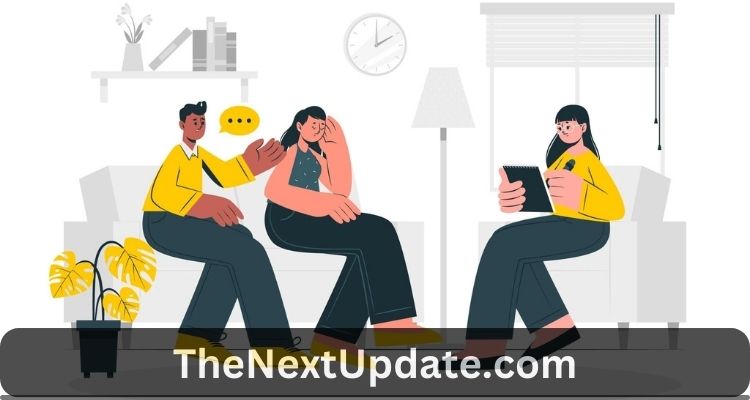When a relationship hits rocky waters, seeking guidance from a Relationship Counsellor through couples therapy can be a courageous step toward smoother sailing. But simply showing up isn’t enough – there are potential pitfalls that, if not avoided, can run this process aground before any progress is made.
To give your partnership the best chance of positive transformation, it’s crucial to steer clear of certain unproductive patterns and approaches. With self-awareness and the proper mindset, you can navigate counseling in a way that maximizes the potential for healing.
The Overnight Solution Trap
Many enter couples therapy with skewed expectations of an instant miracle cure for their issues. But resolving deep-rooted conflicts and overhauling unhealthy relationship dynamics is a gradual process, not an overnight fix. It demands genuine effort over a meaningful period.
An experienced Relationship Counsellor provides invaluable guidance, but they can’t just magically solve everything. Both partners must wholeheartedly commit to the hard work required, in sessions and at home. Resisting that reality and seeking a shortcut will only lead to disappointment.
The Blame Game Vortex
When tensions run high, it’s easy to resort to attacking your partner, listing their flaws and blaming them for the relationship’s problems. But this unproductive behavior breeds resentment, preventing progress. It keeps you both entrenched in the “I’m right, you’re wrong” cycle.
Instead, approach each session with a mindset of taking responsibility for your own contributions to the conflicts. Voice feelings and needs clearly, but avoid harsh criticisms that put your partner on the defensive. A skilled Relationship Counsellor will redirect energy toward solutions, not finger-pointing.
The Lack of Vulnerability Void
Maybe you’re holding something back due to shame, fear or thinking it’s not a big deal. But withholding key information or feelings could sabotage your chances at real progress. Counseling demands complete openness and vulnerability from both sides to achieve true understanding.
Remember, your therapist is an objective third party bound by confidentiality – their role isn’t judgment, but rather facilitating insight between you. The path to healing requires courage to lay everything out, even the uncomfortable truths you’d rather avoid.
Sidestepping the Core Wound
For many couples, the lynchpin issue that prompted seeking help is the elephant in the room – a betrayal of trust, an affair, years of built-up grievances. As painful as these core wounds are, avoiding them means avoiding true healing.
It will likely get very uncomfortable opening up about these issues. Awkward silences may linger as you struggle for the right words. But that’s okay – lean into the discomfort alongside your Relationship Counsellor, who can guide you through to the other side toward understanding.
Persistence is Paramount
A few unproductive sessions can lead to doubts about whether counseling will ever “work.” An explosive argument may make you question the entire process. Feelings of frustration and urges to quit are normal speed bumps on this journey.
The truth is, developing new patterns of relating and communication takes diligent persistence over a decent stretch of time. Pulling the plug prematurely means potentially missing out on profound breakthroughs just around the corner. Commit to showing up and sticking with it, even when you want to throw in the towel.
Fully Engaged, Not Passive
One of the biggest saboteurs of successful couples therapy is taking a passive stance – simply showing up, but not being an active participant. While your Relationship Counsellor provides guidance, they can’t do the hard work for you.
Show up ready to openly discuss, actively listen, and put in the vulnerable labor alongside your partner. Thoughtfully complete any exercises or assignments between appointments. Avoid phoning it in, expecting your counsellor or partner to steer the ship while you disengage.
Embracing the Inevitable Ebbs
Even with full engagement and commitment, setbacks and tough episodes are inevitable at times throughout the counseling journey. You may have blow-up arguments, hit walls that resurface past traumas, or feel hopelessly stuck.
While discouraging, these are natural parts of the process – two steps forward, one step back. When you encounter these dips, view them as opportunities to reinvest in the process alongside your Relationship Counsellor, not as signs to abandon ship altogether.
Conclusion
True growth and lasting change can’t be achieved overnight. It’s a bumpy voyage that requires courage to confront painful realities, adjust long-standing patterns, and stay the course through choppy waters.
But for those who embrace the challenges of counseling with openness, vulnerability and persistence, the rewards of a reconnected, rejuvenated partnership make it all worthwhile in the end. By avoiding pitfalls like impatience, blame, dishonesty and passivity, you give yourselves the best possible chance of reaching that safe harbor.




